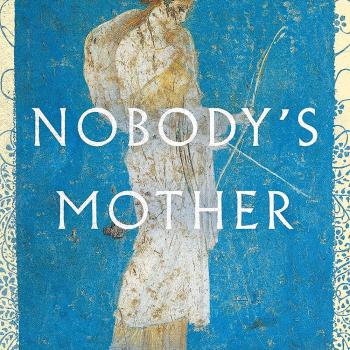For the past few years, a question has incensed readers of the Bible: Did David rape Bathsheba? Or did they commit adultery? It’s clear that David sins, but people have debated how he sins.
Contextualizing David’s sin
This post does more than rehash arguments from both sides. (If you want, you can review the proposals given by Carmen Imes, John Piper, and others who endorse the view that David raped Bathsheba.)
Instead, I want to show how this topic underscores the significant place of contextualization for all interpretation and ministry. As I’ve defined it elsewhere, contextualization is the process whereby we interpret, explain, and apply Scripture within a cultural context. Contextualization begins with interpretation; it does not merely follow interpretation.
We all read the Bible using some (limited) cultural lens. This means that all theology is contextualized (and that doesn’t mean it’s wrong).
So, what does this have to do with David, Bathsheba, and rape?
Why all the fuss?
I’ve seen people get pretty worked up to defend David against charges of rape, preferring to condemn him as an adulterer. Why such fierce reactions against interpretations that argue that David raped Bathsheba rather than saying they had an affair?
After all, even if that view were mistaken, this rape reading is not so unreasonable that it should provoke such strong, angry pushback. So why such pushback?
Objectors give two primary reasons. (I’ll offer my response in a moment.)
1. Eisegesis
Critics of the rape reading worry that it commits eisegesis (i.e., “the interpretation of a text (as of the Bible) by reading into it one’s own ideas”).
Josh Philpot summarizes Richard Caldwell’s concern about the rape-reading:
He believes what has happened in this case is that some are reading the Word of God through the eyes of our cultural moment. He is not saying there hasn’t been scholarly debate on some level for years and years. But he has never heard this take on it until recent times.
He believes it has to do with what is going on in the culture with the me-too movement. There is a high sensitivity to the sexual abuse of women, and he believes it is what has led to this new interpretation of the text.
In short, Caldwell regards the perceived novelty of the interpretation as discrediting.
2. The Meaning of Rape
Intriguingly, other writers think the rape reading actually minimizes rape against women.
Rape has a traditional meaning, but some people today claim that “rape” could be any sex for which one feels regret after the fact. Such an application of the word rape lessens the impact of the word. As the meaning continues to be diluted, victims of rape, as originally defined, may find less initial sympathy for their claims.”
All this is to say we must be extremely careful about saying things such as “David raped Bathsheba.” Based on the historic use of the word rape, implying violent, forcible, or threat-coerced sex, the claim that “David raped Bathsheba” is entirely false. Nothing in Scripture hints at such a thing. Use of the word rape without extensive context is certain to cause misunderstanding. Worse, it can contribute to dilution of the seriousness of the term rape as used in other contexts.”
Saying “David took advantage of Bathsheba” is much more accurate…
According to this view, our contemporary use of the word “rape” makes rape reading less viable.
Our context matters
Let’s examine these arguments. What about those who claim that calling David’s actions “rape” is novel and a product of current cultural events?
Does novelty imply eisegesis? I suggest that we mustn’t confuse eisegesis with “novel-gesis” (to completely make up a word). By this, I mean that relative novelty doesn’t necessarily entail forcing something into the Bible that doesn’t belong there.

Think, for example, of the novel insights that have come with archeological or manuscript discoveries. Those finding positively affect interpretation, aiding our effort to do exegesis. A lack of information or cultural perspective can distort our reading of Scripture. In this way, it may be that recent cultural events contribute to a genuine understanding of the text?
What if #MeToo has finally enabled us to do exegesis rather than eisegesis?!
Perhaps, because of various historical dynamics, the church has been committing eisegesis when interpreting this aspect of the David-Uriah story. Every cultural and hermeneutical instinct must be texted by the words and context of the Bible itself. This principle applies to both older and newer beliefs.
People think #MeToo led to eisegesis when in fact this cultural phenomenon exposed our prior eisegesis and enabled us to do exegesis. When you are unaware of power dynamics, you do not have the ability to see certain types of sin.
Eisegesis creates more problems
Problems often follow eisegesis. For example, notice the overt inconsistency within Caldwell’s own interpretation. Philpot notes,
Dr. Caldwell says that there is no indication that Bathsheba was raped. Would Bathsheba have felt some sort of pressure with David being the king? Most likely, yes, but the text does not say this.
So absent of rape, was there any guilt on the part of Bathsheba? Dr. Caldwell says yes, even though the text doesn’t emphasize it, there is. He doesn’t believe we can say Bathsheba was guiltless unless she resisted. The text provides no evidence that she resisted.
It is truly ironic that Caldwell uses silence to confirm Bathsheba’s guilt while using silence to assert David’s innocence of rape.
What about the second argument above, concerning the definition and possible minimization of rape? I respond with three points.
- The suggestion that “some people today claim that “rape” could be any sex for which one feels regret after the fact” is a strawman. Even if “some people” held that view, it’s far from representative of what normally gets called “rape.”
- The argument hinges on a somewhat culturally fluid definition of a single term. It minimizes the underlying question about whether David committed adultery (hence, Bathsheba’s consent) or rape (i.e., no consent).
- When I shared this interpretation with my wife, she merely replied, “Obviously, that’s a man who wrote that.” In other words, to restrict “rape” only to physical violence misses the fundament problem with rape!
Perspective matters. Context is important. Humility requires we consider both.
For a great sermon on 2 Samuel 11, check out this one from John Crawford, Executive Pastor at Redemption Tempe Church.














